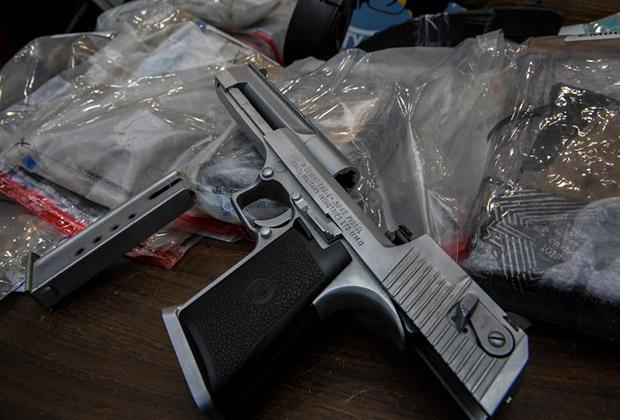So, they finally got Shorty. Early Saturday morning, Mexican commandos captured the world's most elusive drug lord, Joaquin "El Chapo" (Shorty) Guzmán Loera—and Chicago's Public Enemy No.1— in a beachfront condo in the coastal resort town of Mazatlan.
More than 13 years after escaping from a Mexican prison, Guzmán had eluded authorities on both sides of the border, as he ran the Sinaloa cartel, the biggest supplier of illegal narcotics to the United States. Under Guzmán, the cartel staked out a vital drug-distribution beachhead in Chicago. Drug enforcement officials estimate that three-fourths of the illegal narcotics sold here are supplied by Guzman's cartel. Last fall, we examined why Chicago was such a key part of its $3 billion-plus yearly operation.
It's too soon to say what impact Guzmán's capture will have on the drug trade. While it's surely a blow to the Sinaloa cartel—Guzmán is a near-mythical figure in Mexico, the Osama bin Laden of the drug world—the narcotics trade is incredibly resilient. Massive amounts of drugs will continue to flow into the U.S and Chicago, as long as the high demand persists.
Besides that, the cartel's leadership has long been split with Ismael "El Mayo" Zambada Garcia. Zambada is not nearly as well known as Guzmán, but many experts have said that Zambada really called most of the shots, anyway. Zambada's son, Vicente, is currently awaiting trial in Chicago.
Talk has already begun about Guzmán being extradited to Chicago. Jack Riley, who heads up the Drug Enforcement Administration's Chicago office, has already said he'd like to see Guzman tried here. But grand juries in at least seven other federal courts, including San Diego, New York, and Phoenix, have indictments against Guzmán. Could he really be tried here? Where would be be jailed before the trial—the Metropolitan Correctional Center, where a couple of two-bit bank robbers escaped in late 2012? Stay tuned.



